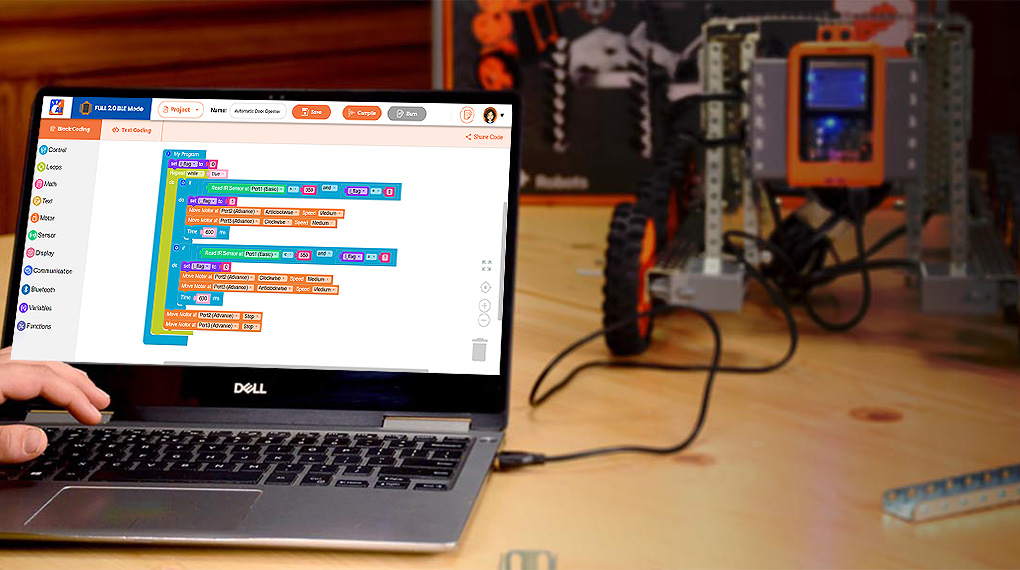
In the last part of the series, we spoke about the importance of learning coding at an early age and how it is going to boost the overall development of a child.
In this blog, we are gonna simplify the basic coding terms. We find many parents are clueless on how to answer the basic questions when their kid who just started learning coding and if you are one of them, read on.
Variables
Let's imagine that we're playing a game where we need to store different kinds of information. We'll use a special box for each type of information. These boxes are called variables. Each box can hold only one kind of thing. The kind of thing a box can hold is called its data type.
Think of a variable as a special box that can hold something for you. You give each box a name, so you know what's inside it.
For example:
- You have a box named age that holds the number of years you are.
- You have another box named name that holds your name.
If there are boxes to store there must be something to put in those boxes and we call them values in coding. The values could be names, numbers, numbers with decimals, and true or false values. To differentiate different values we created data types.
Data Types
As the word itself explains what it is - it's used to identify different types of Data that's why it is called data types.
Data types tell us what kind of things we can put in our boxes. Here are a few common types:
Integer, Float, String, Boolean.
- You have a box named name that will hold value in data type -String.
- You have a box named age that will hold value in data type - Integer.

Operators:
Let's think of operators as special tools or symbols that help us do different kinds of math and comparisons with our boxes (variables). There are different types of operators that help us do different things. Examples of operators that we use in Coding:
- Arithmetic operators (+, -, *, /).
- Comparison operators (==, !=, >, <, >=, <=).
- Logical operators (and, or, not).
Conditionals
Conditionals help us make decisions in our program. We use them to do different things based on different conditions.
If Statements
An if statement checks if something is true. If it is true, it does something. If it's not true, it skips to the next part.
Else Statements
An else statement is used with an if statement. It tells the program what to do if the condition is not true.
Elseif Statements
An elseif statement checks another condition if the first one is not true.
Loops
Loops help us repeat actions over and over. There are two main types of loops: for loops and while loops.
For Loops
A for loop repeats an action a specific number of times. Imagine you want your robot to count from 1 to 5.
While Loops
A while loop repeats an action as long as a condition is true. Imagine you want your robot to keep saying "Hello!" until you tell it to stop.

Algorithmic Thinking:
Imagine you want your kid to clean their room but they don't know where to start. You will have to tell them how you can do it correctly. You would tell them each step to do it. That's what algorithmic thinking is all about creating a list of steps to solve a problem.
Algorithmic thinking helps us solve problems by breaking them down into smaller steps, just like making a sandwich.
Example Problem: Cleaning Your Room
Let's say you need to clean your room. Here’s how you can break it down:
- Pick up toys:
- Gather all the toys from the floor.
- Put them in the toy box.
- Organize books:
- Gather all the books from the floor and desk.
- Arrange them neatly on the bookshelf.
- Make the bed:
- Straighten the sheets and blankets.
- Fluff the pillows and place them on the bed.
If you’ve made it this far, you’re probably really excited to help your child with their coding questions. It's fantastic that you want to support their learning journey and dive into the world of coding together! Let’s make it a fun and rewarding experience for both of you.
No matter which coding language you use, the basic things you need to know are the same.
If you feel this blog has helped you, why not share it with other parents who also want to support their children? Together, we can create a community of parents helping their kids thrive in the world of coding!
Visit Our Website for simplified courses on Robotics and Coding.














